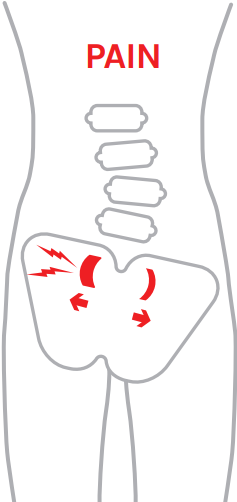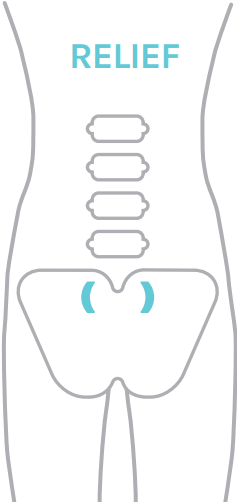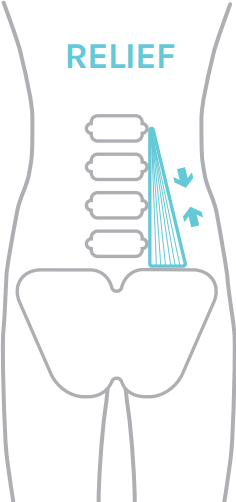Congratulations!
You have created your Rehabilitation Programme.
-
Thank you so much for filling out your back pain questionnaire. Through the answers you have selected, this has enabled us to tailor our response to your abilities and needs.
Please watch the video below:
Chris Aldred BSc (Hons) MCSP
Qualified in 2000 from Manchester University, School of Physiotherapy.
Special Interest: Lower Back Pain. Emotional health benefits on pain.
-
Below is some further information about what could be causing your lower back, buttock and leg issues. Scroll down further to find your tailored rehabilitation programme.
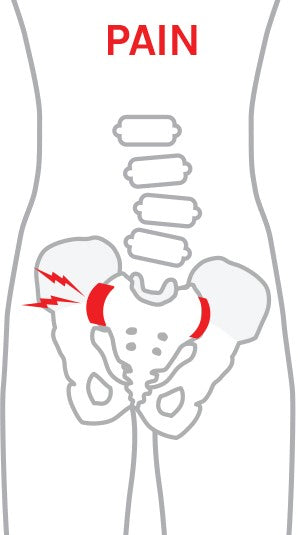
Sacroiliac Joint Problems
The pelvis is a ring shape, that is balanced on top of your hip joints, it consists of 3 bones, two pelvic bones and the sacrum (tailbone). The sacroiliac joint joins the pelvic bone to the sacrum and is surrounded by some of the strongest ligaments in the body, making it very stable where little movement takes place, they do however, naturally loosen and tighten.
Misalignment causes one side of the pelvis to move forward and the other side to move backward. The side of the pelvis held forward causes the sacroiliac joint to slacken and prevents it from properly tightening and this effect is reversed on the opposite side of the body leaving the sacroiliac joint tightened and unable to slacken. Either scenario can cause inflammation of the surrounding ligaments or the joint itself.
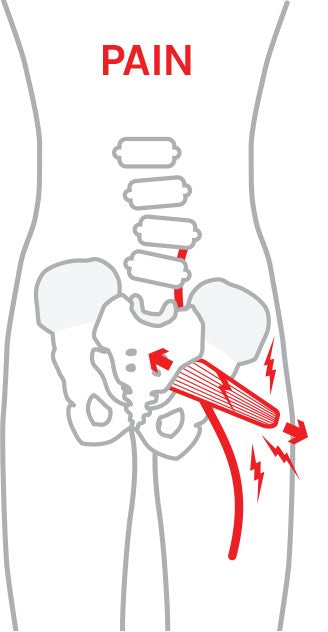
Piriformis Syndrome
Your piriformis is a muscles that travels across the sacroiliac joint. Its influence on this joint is significant. When the sacroiliac joint is dysfunctional, the joint can be loose when it should be tight. The body recognises this and tightens the piriformis muscle in an attempt to tighten the joint back up. If this lasts for a long period of time, the muscle can get tired and start to become inflamed. This can cause achiness, tightness or pain in the buttock.
Your Rehabilitation Programme
-
We stress the importance of these 3 conditions, we believe them to be essential for good lower back health:
- Pelvic Alignment
- Good glute activation and strength
- Good abdominal activation and strength
Weekly Increments
-
Week 1
- Glute Activation
- Transverse Abdominal Activation
-
Week 2
- Superman Exercise
-
Week 3
- The Bridge
- Cat Stretch
-
Start with Week 1 exercises, then add Week 2, finally add Week 3 – Then continue all the exercises for 6 week.
Only progress by adding the next week's exercises if you are getting no adverse reaction to the current week's exercises. Please do the exercises twice a day.
Week 1 - Gluteus Maximus Activation
Please follow the recommended repetitions and sets stated on the exercise videos. If it feels like it is too much then reduce to 2 sets of 5 repetitions.
If this still feels like it is too much, please stop doing the exercises.
Week 1 - Transverse Abdominal Activation
Please follow the recommended repetitions and sets stated on the exercise videos. If it feels like it is too much then reduce to 2 sets of 20 second holds .
If this still feels like it is too much, please stop doing the exercises.
Week 2 - Superman
Please follow the recommended repetitions and sets stated on the exercise videos. If it feels like it is too much then reduce to 2 sets of 5 repetitions.
If this still feels like it is too much, please stop doing the exercises.
Week 3 - The Bridge
Please follow the recommended repetitions and sets stated on the exercise videos. If it feels like it is too much then reduce to 2 sets of 5 reps.
If this still feels like it is too much, please stop doing the exercises.
Week 3 - Cat Stretch
Please follow the recommended repetitions and sets stated on the exercise videos. If it feels like it is too much then reduce to 2 sets of 20 second holds .
If this still feels like it is too much, please stop doing the exercises.









